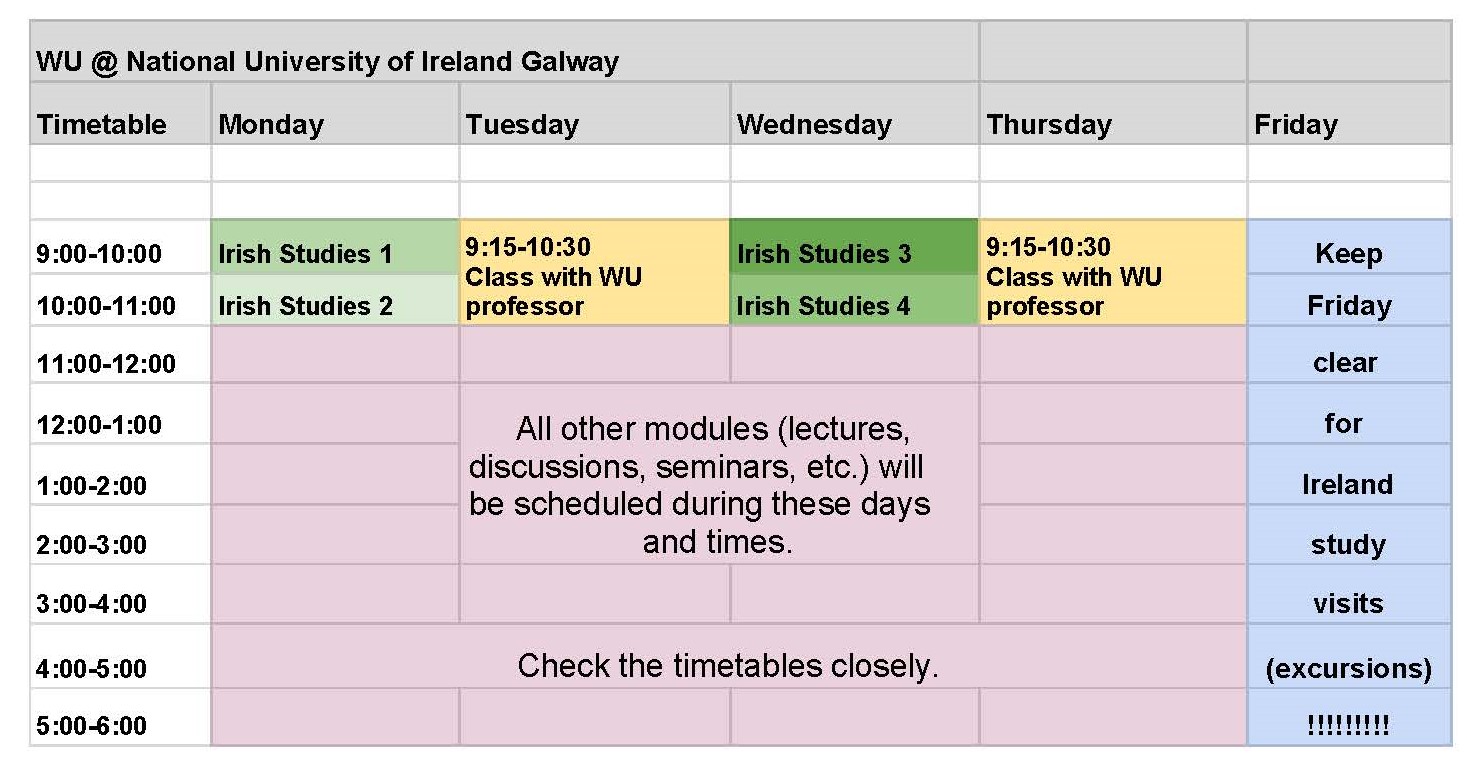Overview
The University of Galway is located on the banks of the river Corrib in Western Ireland. Galway is a modern urban center of 80,000 people that is known to many as a cultural center of Ireland. A Willamette professor teaches one course to the program students and accompanies the excursions with a local guide. Excursions may include Dublin, Northern Ireland, and Cork. Minimum GPA required by host program: 3.0 GPA, or 2.8 GPA with letter from faculty advisor.
The Spring 2026 Program Faculty Leader will be Meagan Parker Brooks, Civic Communication & Media and American Ethnic Studies.
Spring Course: Irish Art Activism
This course introduces students to the diversity of contemporary Irish art and artists advocating for peace, recognition, justice, and reconciliation. Featuring a broad array of art forms–from collages to street art, longstanding murals to dynamic slam poetry performances, haunting song lyrics to heart-felt peace advocacy–students in this course will learn that Irish Art Activism is as multi-faceted and complex as its creators. Along the way, students will learn about Irish history, religion, geography, and politics through the analysis of art as public discourse. Students in this high-impact experiential learning course will also learn to make art inspired by the works we study and by students’ lived experiences through the spaces we travel. Moreover, students will independently research Irish art advocating for issues they are passionate about and they will share what they learn with our class community.
Academics
While at UG, students take an Irish Studies course (4.0 WU credit) that provides an introduction to Irish culture through four lenses: Literature in Irish, Irish Literature in English, Irish History, and Irish Society. Students take a second course (4.0 WU credit) taught by a WU professor and two or three additional courses from UG (credit varies).

The university has approximately 17,000 students and offers a large variety of courses to choose from. This program offers the best fit for humanities and social science majors due to course scheduling of UG classes with the WU program classes and excursion schedules. All participants should have a good deal of flexibility about the local classes they can take from UG.
Housing
Students live in nearby student housing, sharing a bedroom with American or Irish students. Bathrooms and kitchen facilities are shared with six or more students.
Dates
Available spring semester only. Early January start. Final exams conclude by mid-May. Students will have a specific arrival schedule to facilitate group pick up.
Cost
Please see the Willamette Sponsored Programs Cost Matrix for detailed explanation of the cost of each program. Students should plan on paying their police registration fee upon arrival to Galway - the registration fee is 300 Euros (2017). A sample budget for meals, books and transportation can be found on the International Affairs Office website.
Pre-departure Resources
- University of Galway
- UG's International Affairs Office (international students)
- UG information for visiting students
- UG exam timetable (date and time information)
- Housing: Gort na Coiribe
- Galway Student Life (Community Connector)
- News
- Local Weather
- Embassy of Ireland: historical and government information
- CIA World Factbook
- Lonely Planet Guide
Past Faculty Leaders for this program include Tabitha Knight (2024, Economics), Rebecca Dobkins, (2023, Anthropology and American Ethnic Studies), Robert Brewer-Wallin (2022, Theatre), Karen Arabas (2020, Environmental Science), Jonneke Koomen (2019, Sociology), Courtney Stevens (2018, Psychology), David Craig (2017, Biology), Scott Pike (2016, Environmental Science), Richard Ellis (2015, Politics), Ann Nicgorski (2014, Art History), David Gutterman (2013, Politics), Seth Cotlar (2012, History), Wendy Petersen Boring (2011, History), Todd Silverstein (Chemistry, 2010), Ortwin Knorr (Classical Studies, 2009), Mike Strelow (English, 2008), Mark Conliffe (Russian, 2007), Charlie Wallace (Religious Studies, 2006), Steve Hey (Sociology, 2005), Lane McGaughy (Religious Studies, 2004), Ken Nolley (English, 2003), Myles Jackson (Science Studies, 2002), James Thompson (Art, 2001), and Bill Braden (English, 2000).

